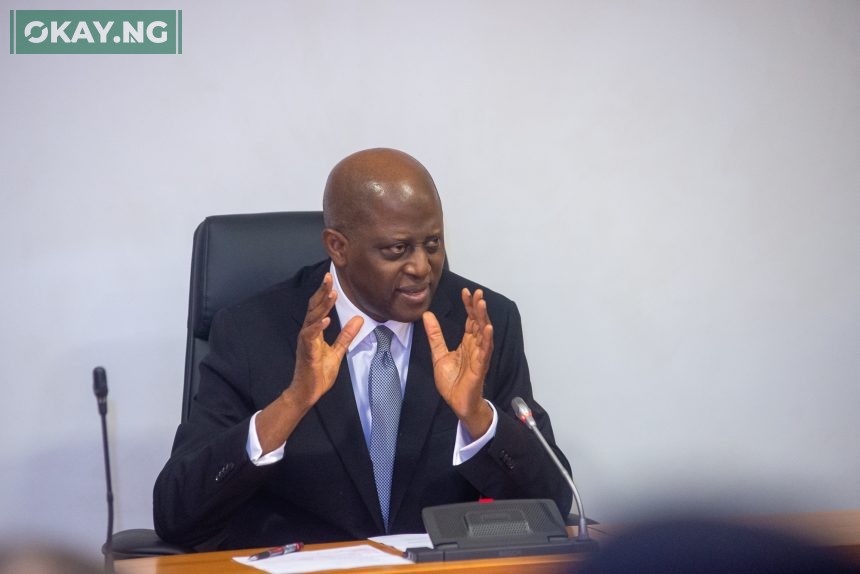In a robust declaration, Central Bank of Nigeria (CBN) Governor, Olayemi Cardoso, has pledged an unwavering commitment to sanitize the nation’s Foreign Exchange Market, aiming to eradicate disruptive practices and establish a stable exchange rate as a cornerstone for economic revival. The governor’s remarks, released following the February 2025 Monetary Policy Committee (MPC) meeting, underscore a determined approach to regulatory oversight and transparency.
“We must maintain a heightened level of surveillance in our foreign exchange market and root out any bad actors and practices that threaten the smooth functioning of the market and stability of the exchange rate,” Cardoso stated, emphasizing the CBN’s “unwavering commitment” to this objective.
The urgency stems from the recognition that a well-functioning FX market is pivotal in achieving price stability, curbing inflation, and bolstering the broader economic landscape. As someone who has watched the naira’s fluctuations impact everyday lives, I understand the need for this stability. It affects everything from the price of food to the cost of imported goods, ultimately influencing the financial well-being of every Nigerian.
Recent reforms, including the introduction of the Electronic Foreign Exchange Matching System (B-Match) and the Nigeria Foreign Exchange Code, are seen as crucial steps towards this goal. These initiatives, as explained by Cardoso, have fostered transparency, boosted investor confidence, and secured sustained liquidity through foreign investment inflows, export proceeds, and remittances. These reforms, according to the CBN, have begun to yield tangible results, including a strengthened naira and a decline in speculative activities, thereby promoting a more market-driven price discovery process.
“More FX demand is now channeled through the official window, reducing arbitrage opportunities between the Nigeria Foreign Exchange Market (NFEM) and the parallel market,” the governor noted. This shift is crucial, as it helps solidify the naira’s stability and restores confidence in the financial system.
While acknowledging the recent moderation in inflation, attributed to the rebasing of the Consumer Price Index (CPI) by the National Bureau of Statistics (NBS), Cardoso cautioned against complacency. “This should not be viewed as mission accomplished,” he stressed, emphasizing the persistent inflationary pressures, particularly stemming from food prices and long-standing structural challenges.
The rebased data revealed a drop in headline inflation to 24.48% in January 2025, from 34.80% in December 2024 under the previous methodology. However, economists, like those at the World Bank, remind us that “inflation remains a significant threat to economic stability and growth” in developing nations. [Source: World Bank Global Economic Prospects Report]. This is where the human angle becomes critical; inflation erodes purchasing power, disproportionately affecting low-income households, and can lead to increased poverty and social unrest.
Cardoso highlighted the importance of collaborative efforts between monetary and fiscal authorities, referencing the recent Monetary Policy Forum, where stakeholders pledged to deepen coordination. This alignment is vital, as fiscal discipline complements monetary policies, ensuring a cohesive approach to economic management.
The CBN’s statement also pointed to positive macroeconomic indicators, including a favorable current account balance, increased oil production at 1.54 million barrels per day, and external reserves of $39.4 billion as of mid-February 2025, which translates to approximately 9.6 months of import cover. These indicators, coupled with stable interest rates and aligned fiscal policies, suggest a gradual restoration of macroeconomic stability.
The governor reaffirmed the CBN’s commitment to maintaining its tight monetary policy stance, while diligently monitoring potential risks. This resolve to defend recent gains in the FX market and the broader economy through policy consistency, robust surveillance, and effective reform implementation is a clear signal to both domestic and international stakeholders.
In essence, the CBN’s message is one of determination and strategic focus. By purging the Foreign Exchange Market of destabilizing elements and maintaining a stable exchange rate, the apex bank aims to lay a solid foundation for sustainable economic recovery. The impact of these policies will be felt by all Nigerians, whether they are aware of the mechanics of the forex market or not.













